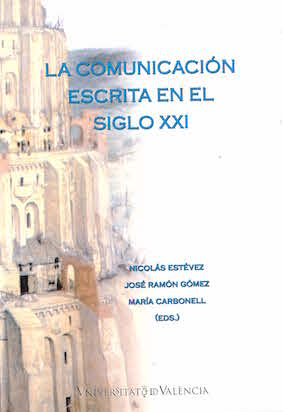Traumatic Techno-Ideology in Contemporary US Fiction and Film: The Limits of the Human in the Posthuman Era
DOI:
https://doi.org/10.7203/qfilologia.16.3939Paraules clau:
posthumà, cyberpunk, trauma, M. McLuhan, N. Wiener Resum
Resum
Aquest assaig analitza el motiu cultural de la fragmentació i inestabilitat del subjecte, de gran impacte en els últims seixanta anys. A continuació, s'estudien les nocions del cyborg i del ser posthumà, alhora que les implicacions que poden tenir per al procés d'ensenyament/aprenentatge. Es proposa com a objectiu didàctic l'anàlisi d'un corpus escollit de narrativa escrita i fílmica que permeti adonar-se als alumnes de la seva pròpia condició posthumana a partir d'un procés de auto-consciència del seu paper d'éssers i d'alumnes.
 Descàrregues
Descàrregues
Descàrregues
Com citar
-
Resum203
-
PDF (Español)135
Número
Secció
Llicència
 Este obra está bajo una licencia de Creative Commons Reconocimiento-NoComercial-SinObraDerivada 4.0 Internacional.
Este obra está bajo una licencia de Creative Commons Reconocimiento-NoComercial-SinObraDerivada 4.0 Internacional.
Tots els documents inclosos a OJS són d'accés lliure i propietat dels seus autors i/o institucions editores, i per tant, qualsevol acte de reproducció, comercialització, comunicació pública o transformació total o parcial necessita el consentiment exprés i escrit d'aquests.
Authors who publish with this journal agree to the following terms:
- Authors retain copyright and grant the journal right of first publication with the work simultaneously licensed under a Creative Commons Attribution License that allows others to share the work with an acknowledgement of the work's authorship and initial publication in this journal.
- Authors are able to enter into separate, additional contractual arrangements for the non-exclusive distribution of the journal's published version of the work (e.g., post it to an institutional repository or publish it in a book), with an acknowledgement of its initial publication in this journal.
- Authors are permitted and encouraged to post their work online (e.g., in institutional repositories or on their website) prior to and during the submission process, as it can lead to productive exchanges, as well as earlier and greater citation of published work (See The Effect of Open Access).



